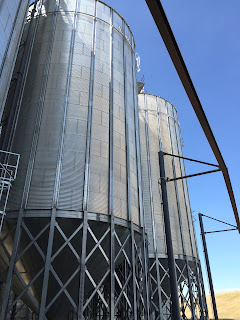Washington State Veterinarian
State Veterinarians across the U.S are concerned about animal susceptibility to coronavirus and
possible links between animals and the spread of COVID-19 among humans.
 |
| Horses are not susceptible to COVID-19, but horse owners should avoid gathering with people around horse barns etc. |
A virus in the coronavirus family, equine coronavirus (ECoV), can cause gastrointestinal disease in horses with signs of fever, depression diarrhea and colic, but this variant is NOT the same as the virus that causes COVID-19.
The Equine Disease Communication Center has recently put together valuable resources about the differences in ECoV and COVID-19.
Concern about people
Although our horses are relatively safe for the pandemic, people participating in equine activities and events such as group trail rides, boarding, training and lessons are still at risk.
At a time when we are trying to control the spread of COVID-19, we need Washington’s equine enthusiasts to do their part, too, by adhering to strict limits on, or completely avoiding gatherings of any kind.
Improve your biosecurity for horses
We need to improve our personal biosecurity and that of our horses. So, here are some best practices that were developed with the help of our colleagues in Kentucky to adjust equine activities to protect public health during this time. I urge you to implement these best practices in your facility and in your activities:
- Open barns to allow as much fresh air exchange as is possible.
- Assign equipment to an individual horse. Virus can be carried on equipment (ie: halters, shovels, brushes, cross ties, etc.)
- Clean and disinfect equipment daily. This is always a good practice and can decrease the spread of other important equine viruses such as equine influenza virus and equine herpes virus. Clean and disinfect surfaces such as desks, rails, gates, floor mats having contact with individuals or equipment daily.
- Prepare and complete records electronically. Paper records or common dry erase boards can be a pathway for virus to pass between people.
- Limit the number of daily visitors to farms. Consider a schedule that limits the number of individuals on the farm to be less than 10 at any one time.
- Farm employees and horse owners should practice social distancing. This is the only way to stop the spread of the virus.
- Farm employees should take their own temperature twice daily and self-quarantine if they have a fever. Fevers should be reported to the barn manager. Designate someone else to care of the sick person’s horse.
- Do not to move your horses between stables unless it is essential.
- Practice excellent biosecurity. Clean and disinfect your tack and your trailer including the wheels. Moving horses to new stables causes them stress which can suppress their immune system making them more susceptible to disease.
- Follow CDC’s recommendations and wash your hands frequently with soap and water.
I understand that some of what we are recommending is inconvenient, some of it costs money, but if we all work together, we can stop the spread of this virus. All our health, our economy and the quality of our lives depends on our working together.





